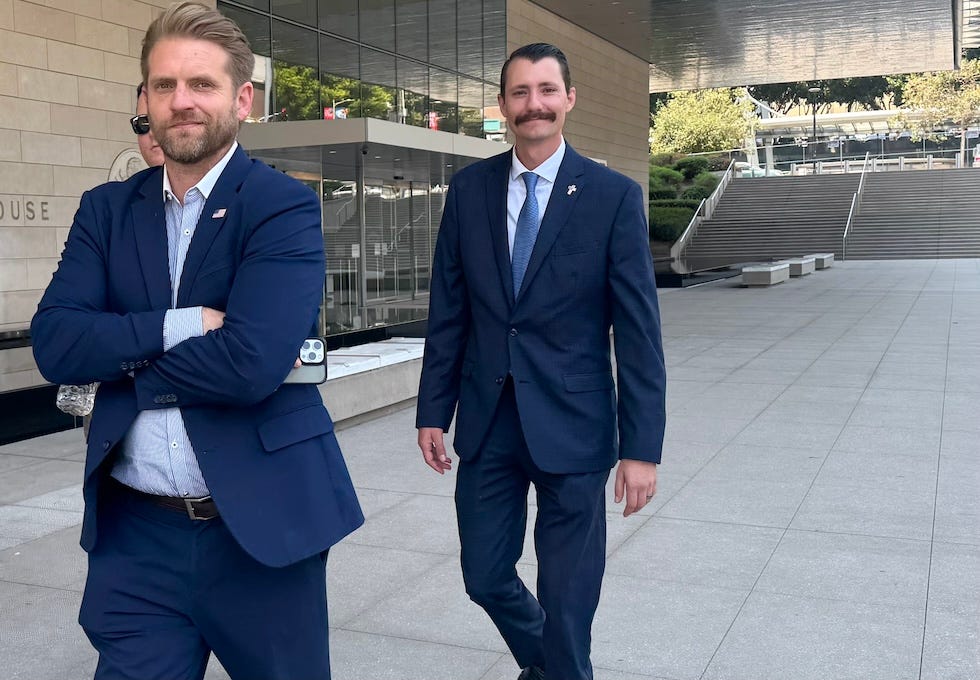Judge questions post-sentencing dismissal request in sheriff deputy's civil rights case
A former federal judge now representing the victim is asking the 9th Circuit to appoint him and the victim's other lawyer as special counsel to defend the convictions.

The Trump-appointed U.S. attorney’s new attempts to dismiss criminal indictments in Lo…


